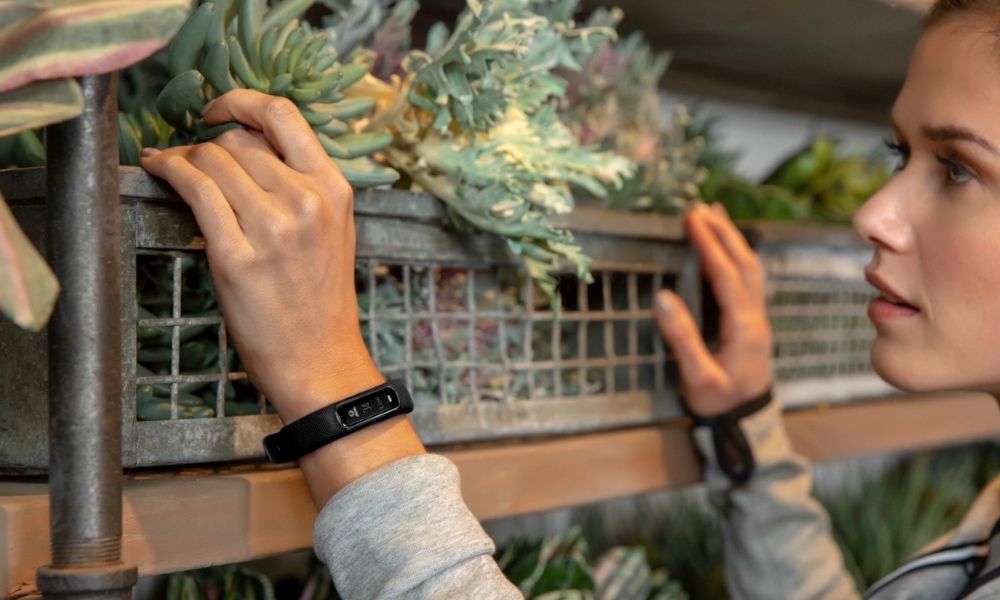Using a smartwatch for stress tracking and other everyday health metrics has become standard practice in the modern world. From monitoring heart health to analyzing other signs of fatigue, many of us have come to rely on the word of the smartwatch like gospel, however, recent research suggests that there is almost no correlation between the stress levels reported by smartwatches and the stress that participants in the study said they experienced.
A smartwatch’s unreliability when it comes to stress measurement doesn’t necessarily suggest the devices are now redundant, but it might be time to take its metric measurements as suggestions rather than accurate indicators of health.

Smartwatch Stress Tracking Is Unreliable According to New Research Reports
A measurable phenomenon like heart rate can be tracked using sensors, but when it comes to more abstract mental concepts like “stress,” it can be much harder to create a clear profile of how stress is felt and experienced by the user. In a recent Dutch study published in the Journal of Psychopathology and Clinical Science, researchers worked with 800 young adults who used Garmin Vivosmart 4 activity trackers to monitor stress and fatigue levels as well as sleep data.
The study asked the participants how stressed they felt four times a day, collecting information simultaneously from the smartwatches as well. The research found that none of the 800 participants were given a stress score by their smartwatch that accurately reflected how they were feeling. For a quarter of the participants, the feelings of being stressed and relaxed resulted in opposite data from the smartwatch.
The study also took Garmin’s body battery feature into account, which is designed to assess the physical fatigue of the user. The data showed a higher correlation between the score and the user experience compared to the mental stress levels, however, the results were still found to be too weak to be a relevant metric.
The smartwatches’ low accuracy in stress tracking serves as a reminder that while there might be a relationship between physiological changes and mental states, their relationship cannot be accurately tracked by a smartwatch. An overreliance on the new health scores and metrics that smartwatch makers devise with every new release can be detrimental to your overall health.
Are Smartwatches Now Redundant?
No, not in the slightest. The results of the study and its findings on smartwatch stress tracking are unsurprising, as there has always been a limit to their capabilities. While a smartwatch might assess your fast-beating heart as a sign of stress, you might just be exercising at a healthy level or singing along at a concert, a handful of steps away from your favorite artist. Without these context clues, the watch can only tell you about the physiological symptoms it has access to, leaving the information for you to interpret.
Smartwatches can also be used for far more than just stress tracking. The study found that the watch was better at tracking sleep duration. There’s a caveat here as well, as the sleep duration assessment doesn’t necessarily help with estimating how well-rested the user is upon waking. There are assumptions that smartwatches can make about uninterrupted deep sleep and its relationship with a well-rested individual, however, these metrics don’t paint the full picture. Still, using this data over a period of time might be useful when studied in relation to other metrics and as predictors of health conditions like depression.
Smartwatches have further uses as well and are best applied for activity tracking, whether indoors or outdoors. Their fall detection systems and call systems can be life-saving, and for women, watches that offer menstrual tracking are another boon. Are they the perfect health tracker? No, and it its important that users realize that, however, there are many ways for these nifty gadgets to still find use in your daily life.
Should You Rely on a Smartwatch’s Stress Measurement for Daily Insights?
Most smartwatch makers are quick to remind users that these gadgets are not meant for medical advice or data, but in recent years, many have come to rely on the information gathered by them in order to reconnect with the changes occurring internally. Most marketing surrounding smartwatch stress measurement can be fairly misleading, which is why it’s always important to take it with a grain of salt. Whether you’ve come to count on smartwatches for health advice or AI for therapy, it’s important to understand that there is no worthwhile replacement for talking to a health professional or certified expert about your overall wellbeing.
The numbers on a smartwatch or smart ring provide an estimate of changes occurring within the body, which you can use to further assess how you are feeling and plan what alterations need to be made to your lifestyle. Smartwatches are a value addition to the technological gadgets we rely on today, and a lot can be learnt from their daily evaluations as you go about your routine, but it is important to exercise your own judgment and add some context to the data you’re collecting every day.
Hyperfocusing on these metrics in an attempt to improve them can lead to more anxiety and stress, which is a problem best avoided.
Do you agree with the study’s findings on smartwatch stress tracking? Let us know what you think. Subscribe to Technowize for more insights into the latest and greatest gadgets and wearables making their way to the market right now.


No Comments